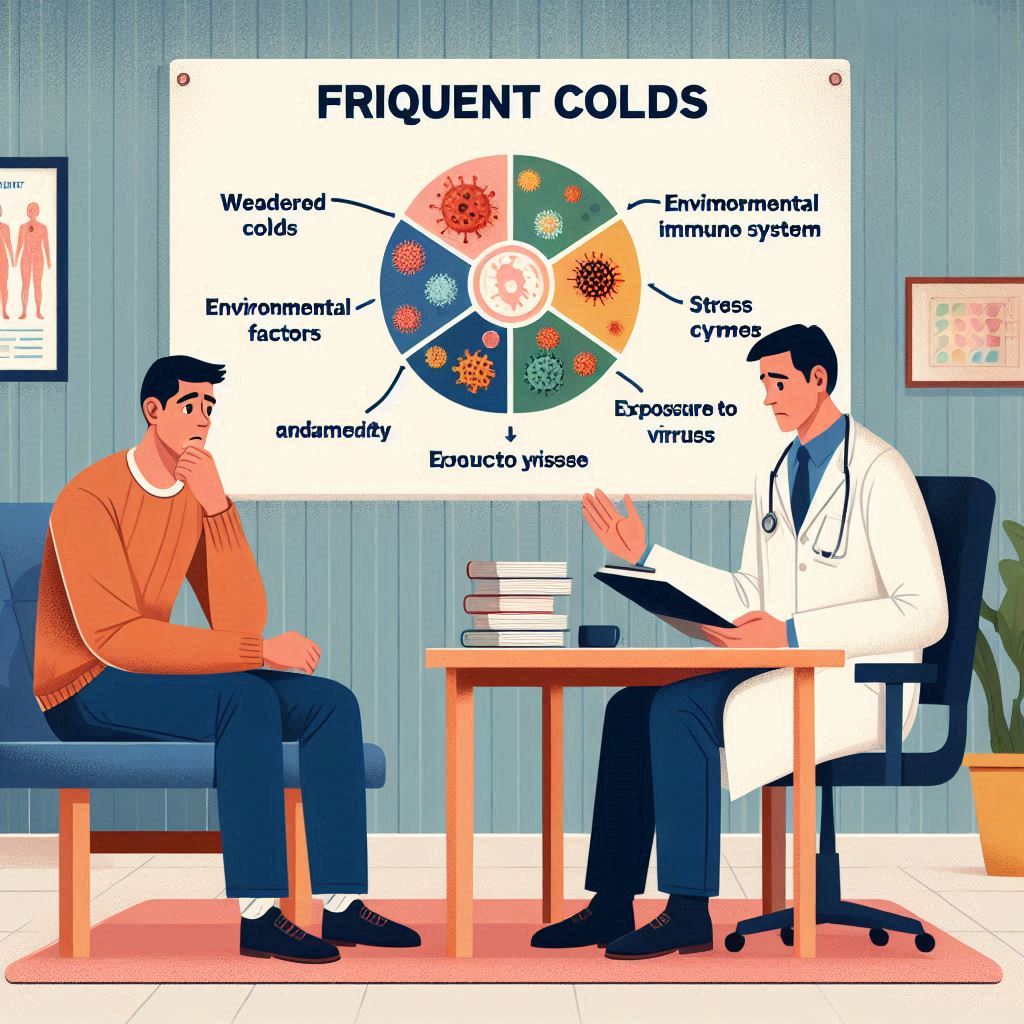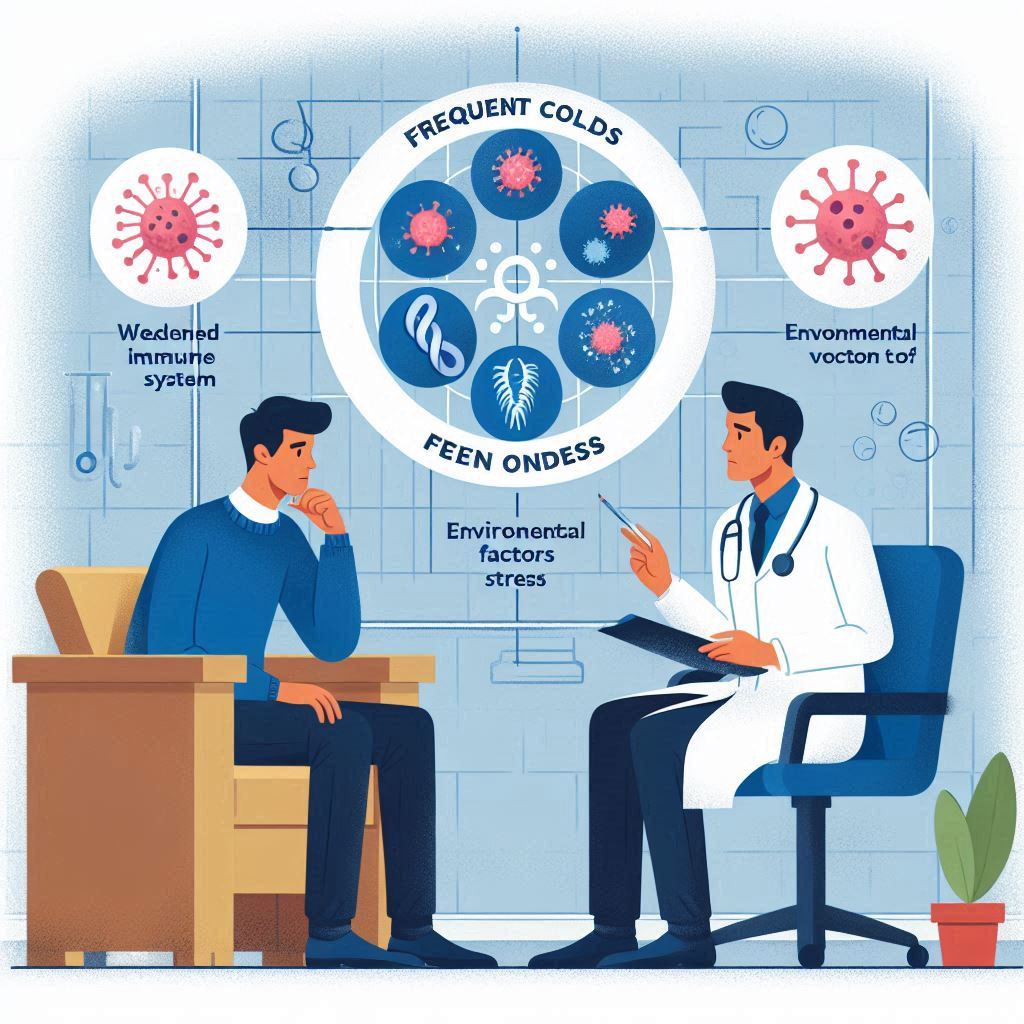Why Do Some People Get Colds More Frequently?
-
-
08-December-2024
-
26 Likes
Although colds are one of the most prevalent illnesses, some people tend to be more vulnerable to them than others. While occasional colds are natural, their recurrence may reflect underlying causes other than chance. This article investigates the environmental, lifestyle, and genetic factors that influence why certain people get colds more frequently.
1. Genetics: Do You Have a Predisposition?
Your genetic makeup significantly impacts how your immune system responds to infections. Some people inherit genes that either reduce or enhance their immune system's ability to fight off specific pathogens, such as rhinoviruses, which are responsible for most colds.
- Immune System Variability: Variations in the human leukocyte antigen (HLA) system, which helps the body detect and combat infections, can lead to a weakened response to cold viruses.
- Immunodeficiencies and Allergies: A genetic predisposition to allergies or conditions such as primary immunodeficiency can make individuals more vulnerable to respiratory infections.
2. Lifestyle Decisions: Daily Routines Matter
Your daily habits and routines significantly influence how often you catch colds. Poor lifestyle choices can weaken your immune system, making it harder to fight off infections.
- Sleep Deprivation: Not getting enough sleep reduces the production of infection-fighting cells, increasing your likelihood of catching colds.
- Stress: Chronic stress raises cortisol levels, suppressing the immune system and making you more susceptible to illness.
- Poor Diet: A diet low in essential nutrients, particularly zinc, vitamin C, and vitamin D, can impair your immune defenses.
- Inadequate Exercise: A sedentary lifestyle can weaken immune function, while moderate regular exercise strengthens it.
3. Environmental Factors: What Is Your Surrounding Like?
Your living and working environment plays a crucial role in determining your exposure to colds. High levels of pathogen exposure or other unfavorable conditions can significantly increase your risk.
- Crowded Spaces: Spending time in public transportation, offices, or schools exposes you to more viruses.
- Air Quality: Poor ventilation or exposure to pollutants can irritate respiratory airways, reducing resistance to illness.
- Seasonal Changes: Cold and dry winter air helps viruses survive and spread more easily.
- Close Contact: Sharing spaces with sick individuals increases your risk of infection.
4. Age and the Immune System's Normal Decline
Age also affects how your immune system responds to infections.
- Children: Their developing immune systems make them more susceptible to frequent colds.
- Older Adults: Immune function declines with age, reducing the ability to fend off illnesses effectively.
5. Hygiene Habits: Your Primary Line of Defense
Poor hygiene can significantly raise your chances of catching colds. By adopting simple practices, you can greatly reduce your exposure to viruses.
- Handwashing: Clean your hands frequently with soap and water.
- Avoid Touching Your Face: This minimizes the chances of transferring viruses to your nose or mouth.
- General Cleanliness: Maintain personal and environmental hygiene to reduce viral exposure.
Is It Possible to Reduce Your Chances of Frequent Colds?
While some factors, such as genetics, are beyond your control, you can take proactive steps to lower your risk:
- Boost Immunity: Maintain a balanced diet, exercise regularly, and get enough sleep.
- Hygiene: Practice good hygiene and minimize contact with sick individuals.
- Reduce Stress: Incorporate stress-relief techniques such as yoga or meditation into your routine.
- Vaccinate: Stay up to date on vaccines and consider annual flu shots to guard against more serious illnesses.
Conclusion
Frequent colds may be inconvenient, but understanding how genetic, lifestyle, and environmental factors interact can help you take steps to protect yourself. While you can't control everything, adopting healthier habits and practicing better hygiene can significantly lower your chances of falling ill and improve your overall health. Remember, a strong immune system is your best defense against the sniffles!
Recent Post
5 Ways to Soothe Coughs and Colds with Dr. Bilal Rather
Feeling unwell? Discover five simple yet effective remedies to ease cough and cold symptoms, stay comfortable, and recover faster. Stay hydrated, rest well, and manage symptoms with expert-backed tips.
Cough and Cold: Knowing the Fundamentals
Colds and coughs are frequent ailments that most individuals get at some point. They have different origins and symptoms, even though they frequently coexist. You can better control and avoid them if you are aware of these distinctions.


